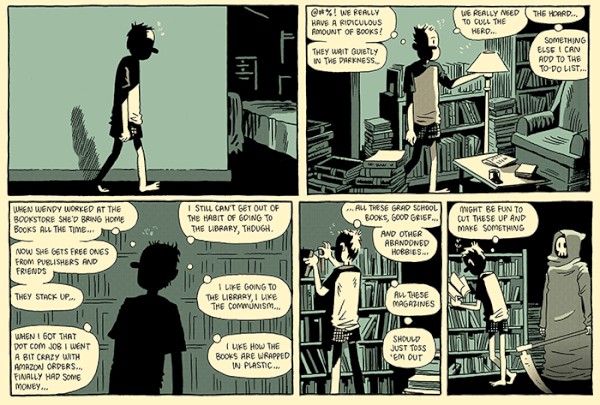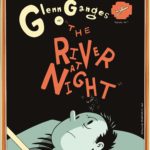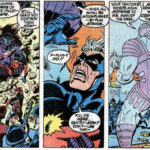Writer: Kevin Huizenga
Illustrator: Kevin Huizenga
Publisher: Drawn & Quarterly
“A man has trouble falling asleep and reflects on his life, marriage, and time itself.” It’s hard to imagine an elevator pitch as listless as this being made to a publisher by anyone other than Kevin Huizenga. The Chicago and Minneapolis-based artist wouldn’t need to say much else, though. Anyone familiar with his work — specifically Glenn Ganges, his most famous character — would know exactly what to expect.
Ganges is hard to describe, not because he has nothing particularly unique about him, but because he resonates so strongly as someone exactly like the rest of us. He spends his days doing what millions of us do, wondering what the purpose of it all is, while trying to whip up enthusiasm for tasks that are essentially devoid of meaning. It is his constant struggle to fall asleep that saves him, pushing him down avenues of thought that range from the mildly philosophical to the utterly ridiculous. In the process, he manages to stumble upon larger truths. It is the ability to capture these radically divergent nocturnal journeys on paper that gives Huizenga’s work its undeniable power.
There is no narrative here, not in the strict sense of the term we use to critique a work of fiction. Ganges has thoughts that flit from present to past, conjecture to idea, nostalgia to boredom. At 3 am, trying to get his mind to wind down, he finds out just like the rest of us that this is as easy to do as touching a rainbow.

Glenn and his wife Wendy have been an integral part of Huizenga’s body of work for years. They behave like most everyday couples, trying to make a living, and bickering with each other while navigating the ageing process together. Huizenga’s series of books featuring the couple has explored varying aspects of their relationship, making it possible for one to dip into any of them at random or follow them chronologically and emerge with a different impression. This is also what makes multiple readings of The River at Night rewarding.
Ganges and his wife retire to bed in different states: she, exhausted after grappling with work, and he, regretting the consumption of a pot of coffee. While she slumbers, his mind enters a quasi-active state in which memories of former jobs, bosses, and colleagues jostle alongside ruminations on time and productivity. These are interspersed with themes that appear and disappear, flitting across space, time, and ideas in an instant, while somehow encompassing a lifetime. There is humor here, and satire, and philosophy, and so much more.
There are also echoes of Virginia Woolf, a possibility Huizenga would balk at, given how far removed his writing is from her dense stream of consciousness prose, but Woolf’s same sense of time’s elasticity seeps through his pages.
For a book that seemingly focuses on the humdrum, The River at Night ends up being surprisingly moving, possibly because it manages to convey the existential struggle we all fight at some point or the other, to try and find relevance in a universe that rarely condescends to acknowledge our presence.




![[REVIEW] DRACULINA #1](https://geekd-out.com/wp-content/uploads/2022/02/D0E96DEB-FEC3-4D98-ABDE-7C5B0C998E30-150x150.jpeg)